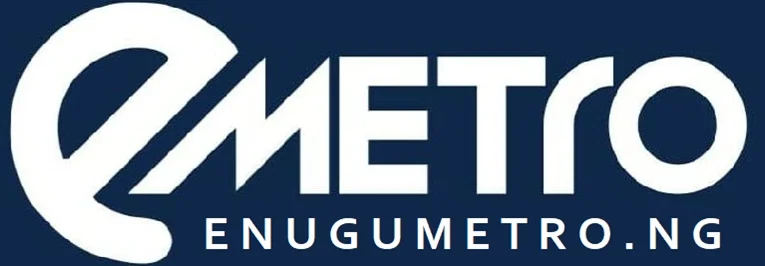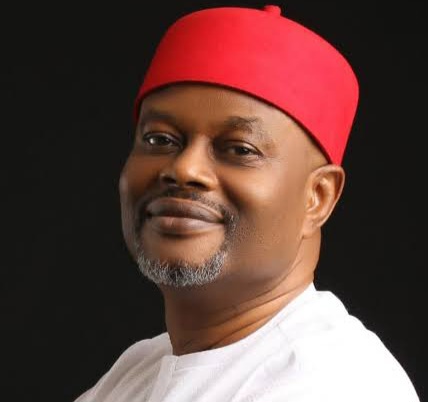Beyond Minister Uche Nnaji’s alleged certificate forgery: An Enugu Metro Explainer.
The Saga: How a Certificate Became a Political Weapon
The controversy surrounding Minister of Innovation, Science and Technology, Uche Geoffrey Nnaji, has evolved into a full-blown political theatre that reflects the deep fractures within Enugu State’s All Progressives Congress (APC) and the growing tension ahead of the 2027 governorship and presidential elections.
At the heart of it all is a certificate forgery accusation that has been resurrected from the past and repackaged for the present. Online reports allege that the minister’s academic records are inconsistent, with some questioning his university credentials. For weeks, social media has buzzed with claims and counterclaims, while party insiders leak damaging stories designed to keep the issue alive.
Nnaji himself has not been formally charged with any offence, nor has any credible evidence been produced publicly. But in Nigerian politics, perception is often more powerful than proof. Once an allegation catches fire, it rarely burns out completely.
The case against Nnaji is therefore less about what he did or didn’t do with his academic certificate, and more about who wants him out of the way—and why.
The First Demon: The APC House Divided
Ironically, Minister Nnaji’s greatest enemies are not from opposition parties but from within his own APC family in Enugu State. Many party members accuse him of alienating those who worked for him during the 2023 elections. A ward executive captured the sentiment bluntly:
“We also want him to be destroyed politically because he destroyed himself ab initio. He divided our party and abandoned those who worked for him during the election. He’s busy sharing positions with his friends, family, and love women. It’s not Yoruba press that are fighting him, but Enugu State APC members are fighting for his wickedness to us and forgery saga.”
In other words, his political isolation within the APC is self-inflicted. Nnaji reportedly sidelined key stakeholders who helped build his campaign, preferring to reward personal loyalists and associates. The result is a disenchanted state party structure where most members would rather see him go down than rally to his defence.
The certificate saga thus provides a convenient excuse—a proxy war for Enugu APC members to settle internal scores. It is no longer about whether the allegations are true but whether they can be weaponized effectively to remove him as a political obstacle.
The Second Demon: The Mbah Factor
The second—and arguably most formidable—force aligned against Nnaji is Governor Peter Mbah, the PDP governor of Enugu State. Although both men hail from the same Nkanu cultural bloc, they are now positioned on opposing ends of the 2027 political chessboard.
According to insiders, Mbah is quietly entertaining a plan to defect to the APC, where he could run for a second term without the internal baggage of the PDP. It is a strategy that would allow him to realign with the centre, especially if the APC retains power at the federal level in 2027.
But there is one problem: Uche Nnaji currently holds the APC flag in Enugu. As a serving minister and former governorship candidate, he naturally sees himself as the de facto leader of the party in the state. That makes him a direct obstacle to any smooth entry by Mbah into the APC fold.
A source close to the situation put it this way:
“Governor Mbah is not unhappy to continue to set fire on Nnaji’s tail from the background. His people oppose the minister because they see him as blocking the governor’s future path.”
For Mbah’s loyalists, neutralizing Nnaji is therefore a preemptive strike—one that ensures their principal can walk into the APC unopposed when the time is right. The certificate saga conveniently serves that purpose: it weakens Nnaji’s credibility and ensures that, when the dust settles, there will be no one strong enough to contest Mbah’s leadership in the APC.
The Third Demon: Tinubu’s Calculated Silence
If Nnaji thought his federal appointment guaranteed him protection from Abuja, he may have misread the President’s body language. President Bola Ahmed Tinubu has been effusive in his praise of Governor Mbah in recent months, lauding his achievements and describing him as “a model for development in the South East.”
This is not just political flattery—it is strategic positioning. Tinubu has every reason to keep Mbah close. The Enugu governor’s elite network, technocratic image, and growing popularity make him a valuable ally for 2027, especially if the APC hopes to consolidate its influence in the South East.
A senior party source told Enugu Metro:
“Tinubu’s plan is simple. If Mbah can be persuaded to cross over, the APC will gain a sitting governor, a functional political structure, and a loyal ally who can deliver votes. That’s more valuable than a minister who is already fighting too many enemies at home.”
In that light, Nnaji’s troubles begin to make sense. The alleged certificate forgery scandal, revived at a time when Tinubu is openly flirting with Mbah, looks less like coincidence and more like a political cleansing ritual—a way to clear the path for Mbah’s eventual crossover.
Why Nnaji Cannot Win
In Nigeria’s brutal political calculus, every player must know when the tide has turned. Unfortunately for Minister Nnaji, the tide is against him on all fronts.
- He lacks deep roots in Tinubu’s inner circle.
While his ministerial appointment may have come as a reward for loyalty to the APC, he is not part of the President’s “kitchen cabinet”—the trusted group of power brokers who shape decisions behind the scenes. When push comes to shove, Tinubu will prioritize political gains over personal relationships. - He is despised by his party base.
The Enugu APC remains fractured and demoralized after years of internal conflict. Many local leaders believe Nnaji’s leadership has brought the party to its lowest point. In such a climate, he will struggle to secure delegates or grassroots support for any future governorship ambition. - He has lost his local power base to Mbah.
Among their Nkanu kinsmen, Governor Mbah currently enjoys high approval for his early performance in office—especially his infrastructure drive and urban renewal projects. Nkanu stakeholders see Mbah as a pragmatic performer, while Nnaji is viewed as politically self-centered. This local sentiment will be decisive if both men end up in the same party. - APC National has already made its choice.
Abuja insiders say the ruling party’s national leadership has privately assured Mbah that he would be “warmly welcomed” if he chooses to defect. That assurance effectively closes the door on Nnaji’s continued leadership in Enugu APC.
The Larger Picture: 2027 Starts Now
The unfolding drama around Uche Nnaji is not merely a scandal—it is a symptom of the 2027 power realignments already underway in the South East. The certificate forgery accusation is the visible flame, but the real fire burns beneath the surface:
The APC wants a governor in Enugu ahead of 2027.
The PDP governor wants federal protection and a second term platform.
And the minister in the middle is being squeezed out by both sides.
In this three-dimensional chessboard, Nnaji is the dispensable piece. His enemies—both declared and silent—have found a common interest in using the certificate controversy to finish him politically.
Unless he stages a dramatic comeback, the embattled minister is likely to find himself isolated, discredited, and irrelevant long before 2027.
For now, the demons are winning.


Political games will always fight against true conscience of man.
More grace to the Enugumetro’s investigative journalism culture.